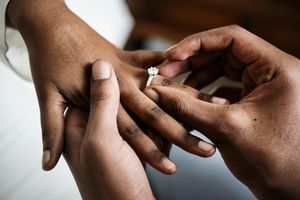
If you have ever sent your boss a meme instead of a long email, used the phrase “It’s giving…” in a team meeting, or caught yourself humming a trending TikTok sound during work hours—you’re not alone. Welcome to the new-age workplace, where Gen Z aren’t just showing up to work—they’re bringing TikTok with them.
From funny skits about office life to slang like “delulu” and “rizz” creeping into everyday chats, social media—especially TikTok—is changing how we talk, work, and even relate to our colleagues. Formal emails are now laced with emojis, and inside jokes are built around viral trends. The line between professional and playful keeps getting blurrier—and some people love it, while others are still trying to figure out what “POV” even means.
But it’s not just about fun and games. This shift is shaping office culture in real ways. Younger employees are pushing for more authenticity, humour, and openness at work. Managers are learning to adapt (or at least pretend to understand). The vibe is less stiff, more real—but also a little unpredictable.
Still, not everyone’s clapping. Some older collea gues feel left behind, unsure whether to laugh along or correct the tone. HR departments now juggle how to keep things inclusive without letting professionalism slip. There's a growing conversation about boundaries: When does “fun at work” help team spirit, and when does it distract from actual productivity? And can humour and hashtags really solve deeper workplace issues like burnout, inequality, or miscommunication?
These are the tensions of a workplace that’s evolving fast—shaped not just by new tools, but by a whole new mindset.
So what does this all mean for the future of work?
To find out, we asked five Gen Z professionals to share how TikTok and social media trends are shaping their work experience—from communication and dress codes to how they feel about leadership and workplace culture. Their takes are just fresh and honest.

Brian Muema, Advocate
Before I started my job, I imagined the workplace as a world of stiff suits, formal emails, and painfully long meetings. But social media—especially TikTok—has flipped that idea on its head. Our team, Slack, now feels more like a meme hub than a corporate space. If someone dares send a long email, they’ll get roasted. And trust me, the sarcasm flies faster than a trending sound.
Slang has become a real part of how we communicate. I catch myself saying things like, “This campaign is giving major success vibes” instead of the usual “This will perform well.” It is lighter, funnier—and honestly, more human. Even feedback feels less awkward when it is laced with humour and a TikTok reference or two.
But it’s not all jokes. Social media helps us communicate more clearly and quickly. If I send my boss a short TikTok explaining a trend, they’ll get it instantly—no need for a lengthy report. It shortens the learning curve and makes complex ideas easier to digest.
That said, it is not always smooth sailing. There is a clear generational divide. Gen Zs usually jump on trends without blinking. The millennials? They're trying—really hard—but sometimes it feels like they’re reading a step-by-step guide just to join in.
Social media has also changed how we relate to authority. TikTok encourages authenticity and openness, which means we’re more likely to speak up, share ideas, and even challenge leadership—respectfully, of course. But this casual tone can sometimes blur the lines. There's a fine balance between being real and being unprofessional.
On the flip side, the pressure to keep up with fast content and viral trends can be exhausting. It is easy for messages to get lost in the noise or misunderstood. That’s why clear boundaries are so important.
Still, I think the ‘TikTok effect’ is more of a blessing than a curse. It has made work feel less robotic and more real—and in a world where most of us spend hours online, that’s a shift worth leaning into.

Wanjiru Kiarie, Journalist
At work, TikTok lingo isn’t just for fun—it’s part of how we communicate. You’ll hear me say, “It’s giving...” when I’m explaining something, and my Gen Z colleagues instantly get what I mean. It’s like a shortcut to clarity, with a splash of humour. The best part? The millennials in our office are open-minded enough to play along. I’ve even taken on the unofficial role of Gen Z translator—teaching them slang and laughing as they try it out in meetings.
Trends don’t just stay online; they show up in our workplace banter too. One time I came in late, and for a whole week, my team made sure I knew that being tardy was neither “cutesy” nor “demure.” The sarcasm was relentless but hilarious. Right now, everyone is obsessed with saying “Odogwu please!” and we use it at the slightest opportunity—whether someone finishes a tough task or just makes tea for the team.
What I love most, though, is how TikTok culture has softened the walls between juniors and superiors. Many of our bosses are millennials who have children on TikTok, so they come in curious, asking what their child meant by a certain phrase. We help translate, and suddenly, we’re laughing together—beyond deadlines and KPIs. It is little moments like these that remind us our managers are human too, and that kind of camaraderie does wonders for morale.
Even my wardrobe has felt the TikTok touch. I follow “corporate girlies” who offer advice on how to stay stylish and professional. They also share tips on handling tough office situations with grace. It has helped me navigate sticky moments without crossing any lines—I want to keep my job and stay authentic.
Of course, it’s a double-edged sword. TikTok is full of distractions, and if you’re not careful, scrolling can eat into your productivity. But on the flip side, those shared laughs, viral references, and fashion inspo make the 8-to-5 grind feel lighter and more human.

Doreen Kananu, Studio Technical Operator
TikTok and social media have completely transformed the way we communicate at work—especially for us Gen Zs. Our conversations are often sprinkled with memes, emojis, and slang from viral trends. It’s like we have our own dialect that feels natural, fun, and relatable. But there’s a flip side: Older generations—especially Gen X or more traditional millennials—don’t always get it. Sometimes our jokes fly right over their heads, and explaining the context can be exhausting. It’s a cool way to express ourselves, but it does create gaps in communication across age groups.
At my current workplace, I haven’t seen any major TikTok trends go viral. Most of my colleagues are older and generally more reserved, so there’s less of that playful, online culture making its way into our daily interactions. That said, among fellow Gen Zs, we still find subtle ways to bond over shared digital language—even if it’s just a side glance and an inside joke.
The influence of TikTok culture has made workplace dynamics with managers interesting. When a manager is in a light mood, they might laugh at our slang or casual tone. But there are also moments when it clearly doesn’t land well. That’s why emotional intelligence is so important for younger employees—we’ve got to read the room. There’s a balance to be maintained. We can bring fresh energy, but we also need to stay respectful and professional.
Social media has also shaped how I express myself and build my personal brand at work. As a content creator, I’ve found platforms like TikTok and LinkedIn useful for sharing insights and mentoring younger professionals. I often use my voice to help interns or new hires feel more comfortable, and that’s been fulfilling.
Is TikTok making the workplace better or more chaotic? Honestly, both. It depends on how you use it. When done right, it brings creativity, connection, and even visibility to workplace culture. But without boundaries, it can easily become a distraction. Like anything else, it’s all about balance.

Margreat Kyalo, Medic
TikTok has fully changed how I talk at work—and sometimes I don’t even realise it. These days, I’ll call a hectic shift “wild,” or say a patient was “a lot,” without thinking twice. Emojis have also slipped into our professional communication—if I ask someone to cover my shift without throwing in a sad face or something, it just feels cold or too blunt. It’s like emotional punctuation now.
The awkward part? When that TikTok-coded language slips out around older nurses. One time after a frustrating policy change, I said, “Yeah, that’s not the vibe,” in front of our in-charge nurse. She just stared at me, completely puzzled. I had to backtrack fast—and since then, I try to save those expressions for our Gen Z-only group chat. That space is sacred. It’s where we decompress, rate our shifts based on TikTok eras, and speak freely. Someone once said a particularly brutal night shift felt like “2016 nursing school energy,” and we all instantly got it. That phrase still lives rent-free in our chat.
Sometimes I forget who I’m talking to and drop a reference mid-sentence—then spend the next two minutes trying to explain it, completely killing the joke. But that’s just how we communicate now. It’s not about being trendy. This is how we release stress, and build bonds in a high-pressure environment. If someone else speaks that language too, I already know we’re going to vibe during a shift.
Sure, it might sound odd to people outside our generation—but for us, it’s just normal. Healthcare is intense. If a little internet slang helps lighten the mood without compromising professionalism, then why not use it?
So yes, I might say “it’s giving burnout” or call a policy change “lowkey chaotic”—and no, I’m not going to stop.

Prince Victor, Nurse
As a Gen Z nurse in Nairobi, I can confidently say that social media—especially TikTok—has completely spiced up how we talk at work. Among the younger nurses, we rarely speak in full sentences anymore. It’s all slang, viral references, or just a meme that says exactly what we’re feeling. If I show up looking exhausted, someone will say, “You’re giving night shift vibes,” and just like that, everyone gets it—no explanation needed.
TikTok in particular has influenced how we express ourselves. We quote trending sounds, drop Gen Z phrases without thinking, and laugh over inside jokes from viral clips. In a high-pressure environment like healthcare, these small things matter. They make tough days feel a little lighter and help us bond in ways older communication never did.
In our WhatsApp groups, it’s all emojis, stickers, and even the occasional video reaction. Typing full replies? Rarely. A single emoji after a long shift can say what a whole paragraph can’t. It’s fast, fun, and honestly, a bit therapeutic. You feel seen, understood—even comforted.
With senior staff, of course, we switch it up. We know when to keep things professional. But even some of them have started picking up the lingo. I’ve heard phrases like “soft life” tossed around in meetings. Some are even using emojis now. It’s hilarious—but it also shows how communication at work is evolving.
Social media hasn’t made us any less serious about our work. If anything, it has helped us connect better—with each other and even with our patients. There’s more humanity in how we talk. You can still be respectful and laugh together. It’s all about balance.
Sometimes we even use TikTok skits to pass on important messages instead of the old school role-play methods that didn’t really stick. A short, funny clip can go viral within the department—and the message gets across.
So yes, TikTok and social media have made our communication more casual, visual, and emotionally in tune. We still get the job done. We just do it with a little more personality—and maybe a few memes thrown in.









